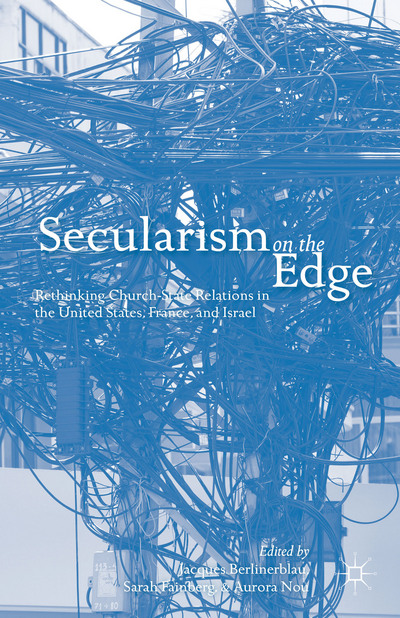In August, Palgrave Macmillan released “Secularism on the Edge: Rethinking Church-State Relations in the United States, France, and Israel” edited by Jacques Berlinerblau (Edmund A. Walsh School of Foreign Service at Georgetown University), Sarah Fainberg (Tel Aviv University), and Aurora Nou (graduate student at American University). The publisher’s description follows:
What is secularism, and why does it matter? In an era marked by global 
Prominent among the points addressed are the crippling nomenclatural confusions that have so hampered not only secularism as a political ideology, but secularism as an academic construct. This reader-friendly volume also offers a critical and nuanced look at how women are impacted by secular governance. Though secularism is often equated with modernity and progress, including with regard to gender equality, our contributors find that the truth is infinitely more complicated.